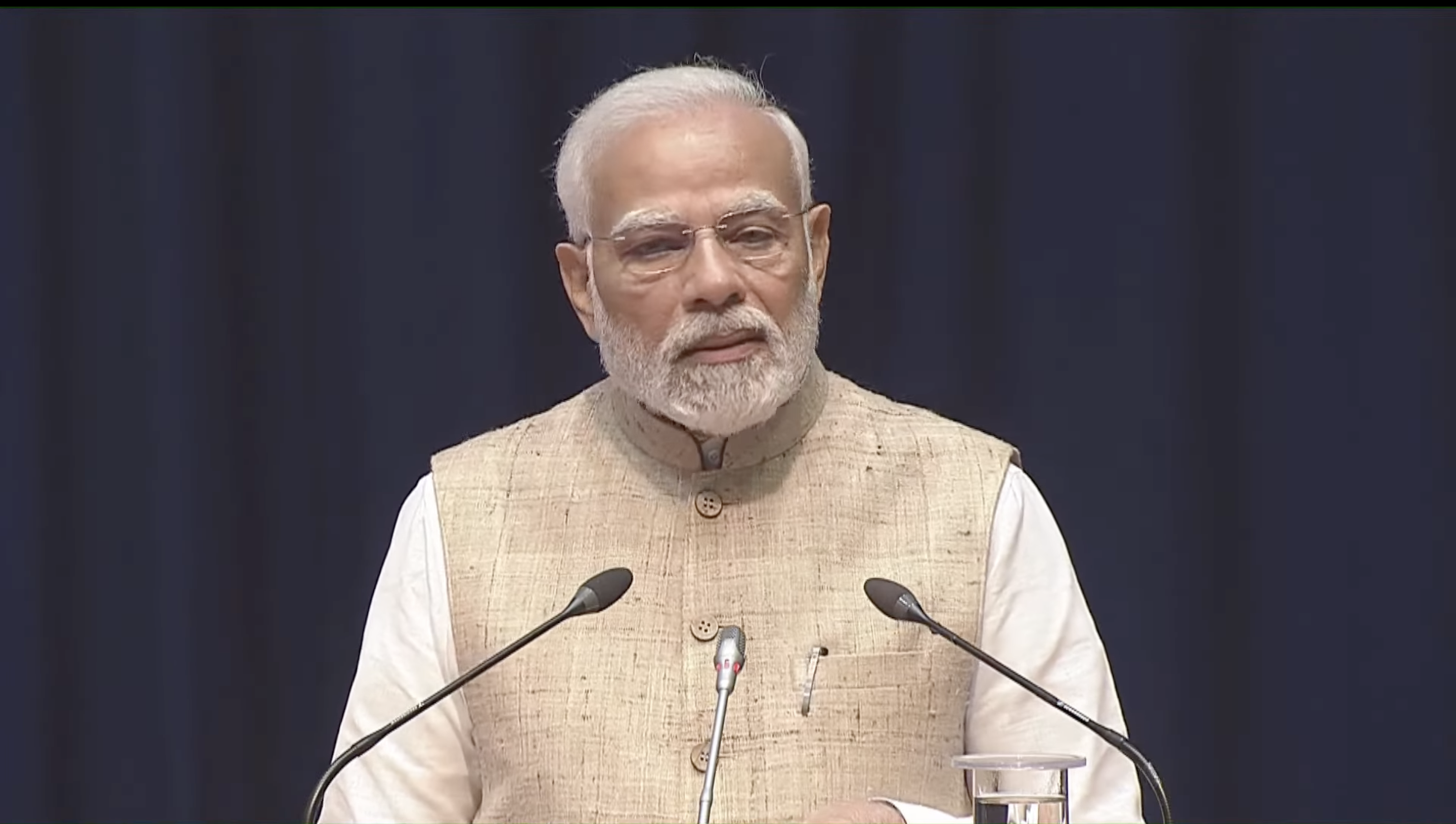In a scathing attack on the opposition Congress party, Indian Prime Minister Narendra Modi has condemned the decision made in the 1970s to hand over the strategic Katchatheevu island to Sri Lanka. Modi’s remarks came in response to a recent Right To Information (RTI) report, revealing the controversial action taken by the Congress government led by then Prime Minister Indira Gandhi. The Prime Minister accused Congress of compromising India’s integrity and interests, asserting that such actions have left a lasting impact on the nation’s security and sovereignty.
Indian Prime Minister Narendra Modi unleashed a blistering criticism against the Congress party, lambasting its decision to relinquish control of the strategically vital Katchatheevu island to Sri Lanka during the 1970s. Modi’s impassioned remarks were triggered by a recent disclosure in a Right To Information (RTI) report, shedding light on the contentious move orchestrated by the Congress-led government under the leadership of then Prime Minister Indira Gandhi.
The revelation, as per the RTI report, has reignited a longstanding debate surrounding the sovereignty of Katchatheevu and its implications for India’s territorial integrity. Prime Minister Modi, in no uncertain terms, condemned the decision, labeling it as a blatant betrayal of the nation’s interests.
“Eye-opening and startling! New facts reveal how Congress callously gave away Katchatheevu. This has angered every Indian and reaffirmed in people’s minds – we can’t ever trust Congress! Weakening India’s unity, integrity, and interests has been Congress’ way of working for 75 years and counting,” remarked Prime Minister Modi, as cited in a media report.
The transfer of Katchatheevu island, located in the Palk Strait, holds immense strategic significance, particularly for Tamil Nadu’s fishermen who rely on its waters for their livelihood. The decision, communicated to then Tamil Nadu Chief Minister M. Karunanidhi in June 1974, has long been a point of contention, sparking debates over historical claims and legal rights.
The RTI report delves into the intricate details surrounding the handover of Katchatheevu, revealing the complexities of the issue. While acknowledging the zamindari rights of the Raja of Ramnad (Ramanathapuram) over the island, the report highlights Sri Lanka’s persistent assertions of sovereignty, backed by historical records and legal opinions.
According to the RTI findings, the decision to transfer Katchatheevu was rooted in a historical context, with references to Dutch and British maps, dating back to the colonial era. Despite India’s legal claims and diplomatic efforts, Sri Lanka maintained a steadfast position on the matter, intensifying tensions between the two neighboring nations.
The ramifications of the Katchatheevu handover have been far-reaching, extending beyond territorial disputes to impact the lives of fishermen from both India and Sri Lanka. The continued detention of Indian fishermen by the Sri Lankan Navy, in waters surrounding Katchatheevu, underscores the enduring consequences of the decision made decades ago.
As the issue continues to reverberate in Tamil Nadu’s political landscape, it serves as a poignant reminder of the complexities inherent in territorial disputes and the enduring repercussions of historical decisions. Prime Minister Modi’s unequivocal condemnation of the Congress party’s actions underscores the need for a comprehensive reassessment of India’s territorial policies, with a renewed emphasis on safeguarding national interests and sovereignty.


